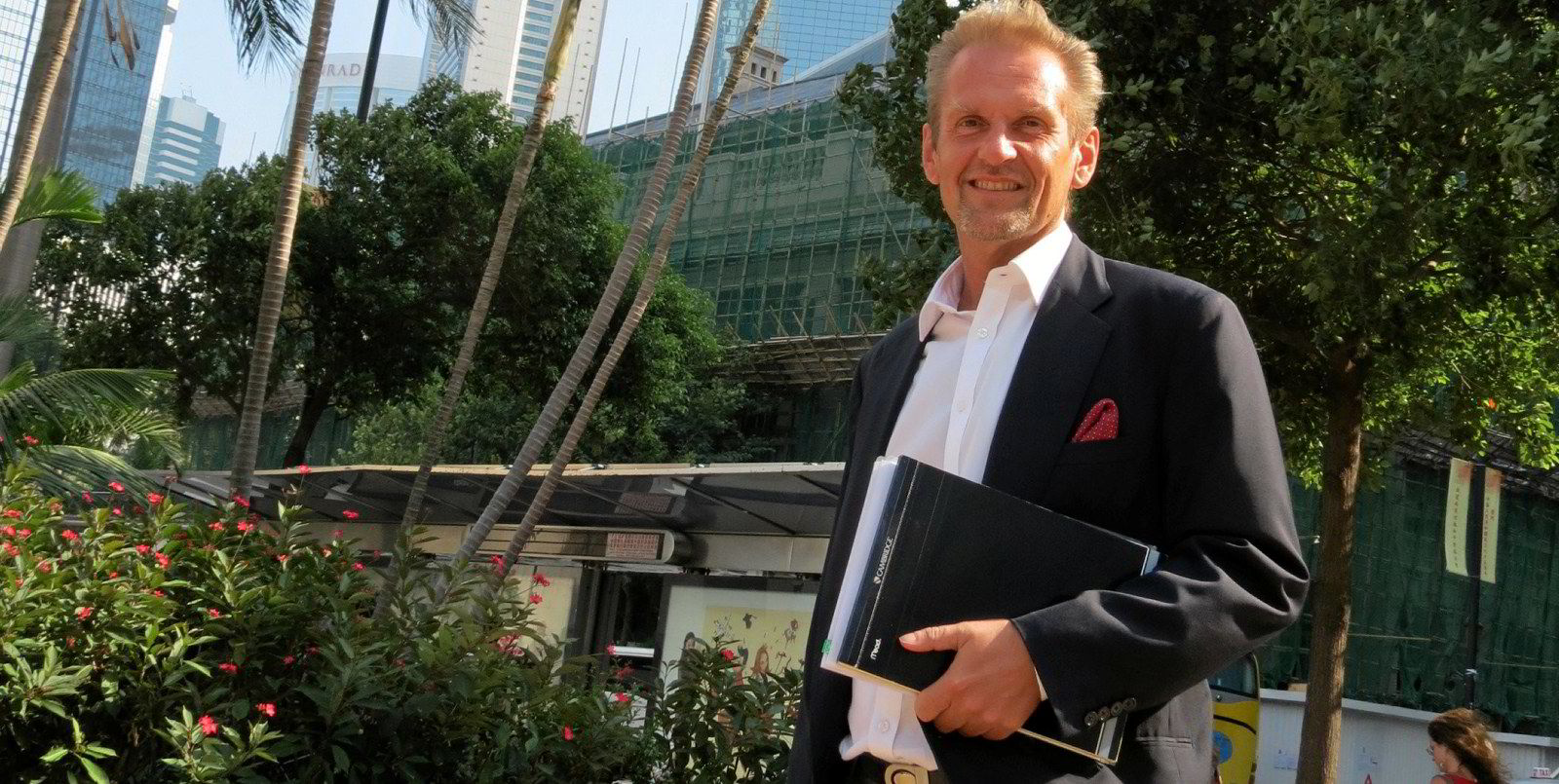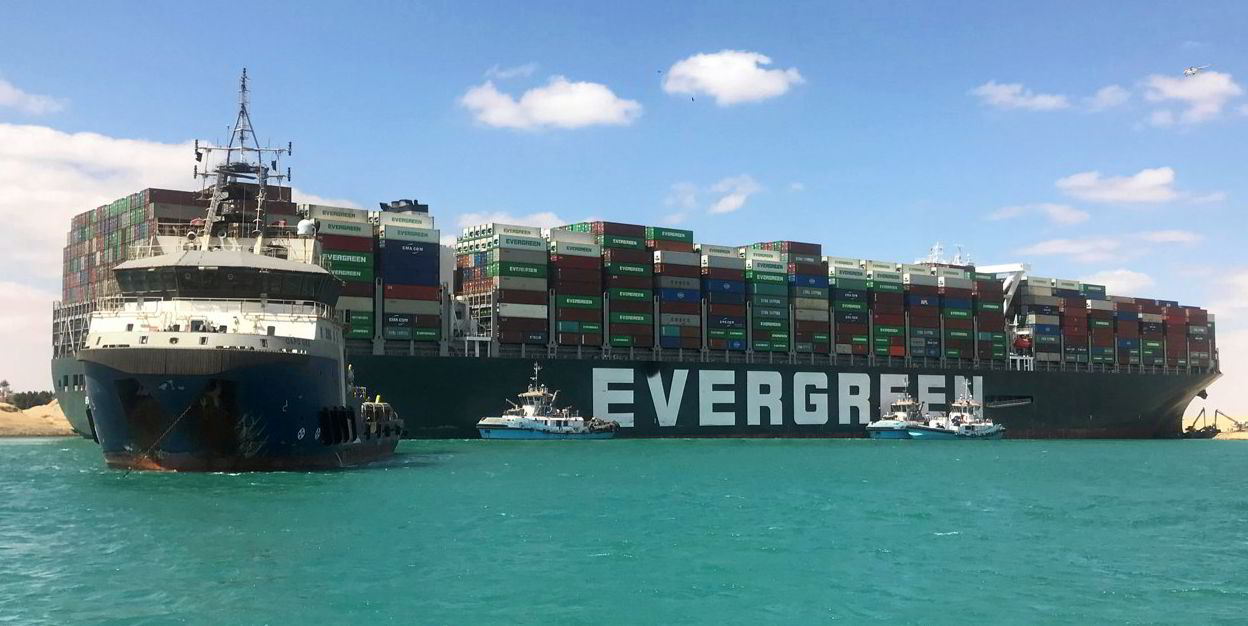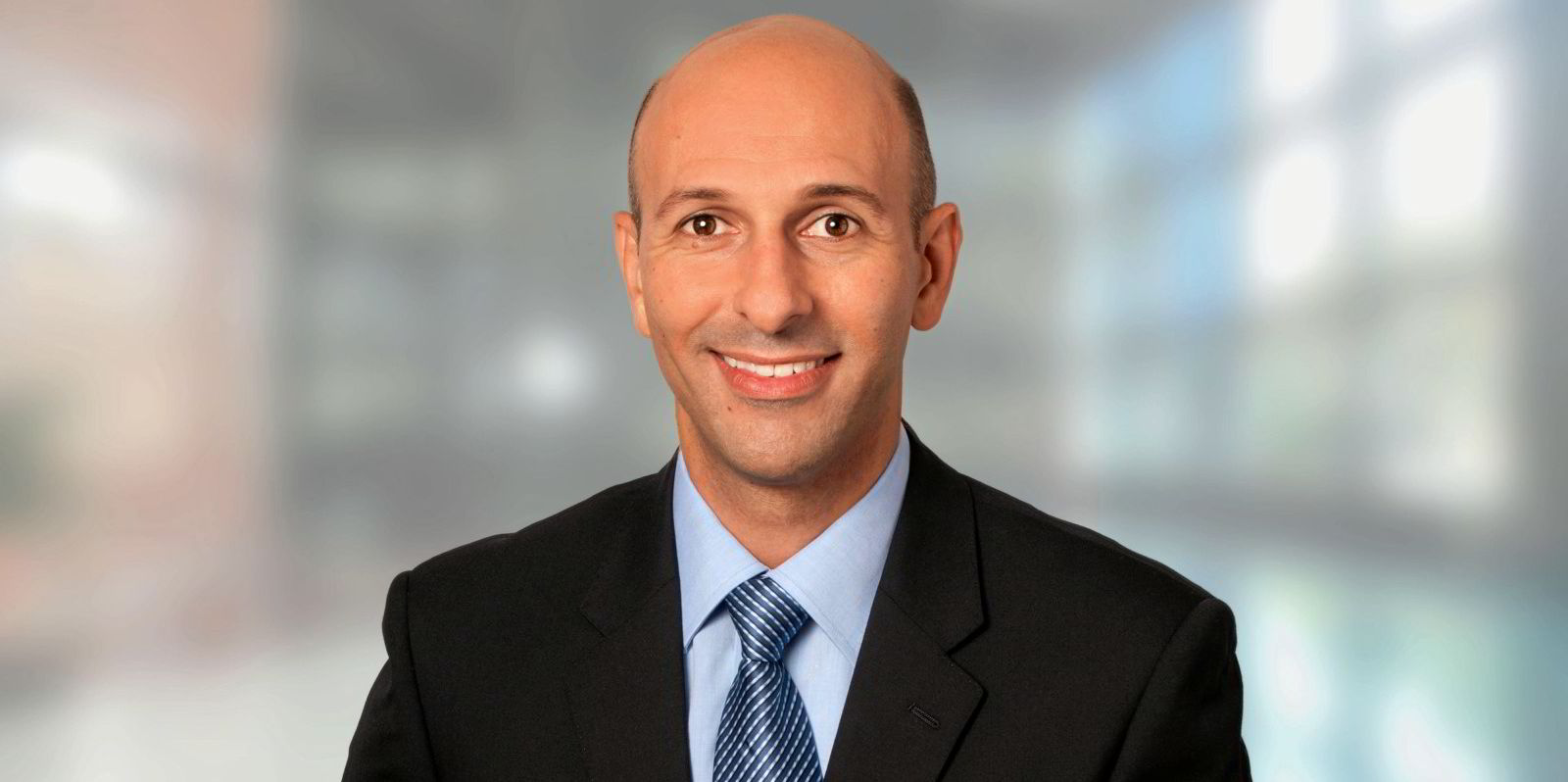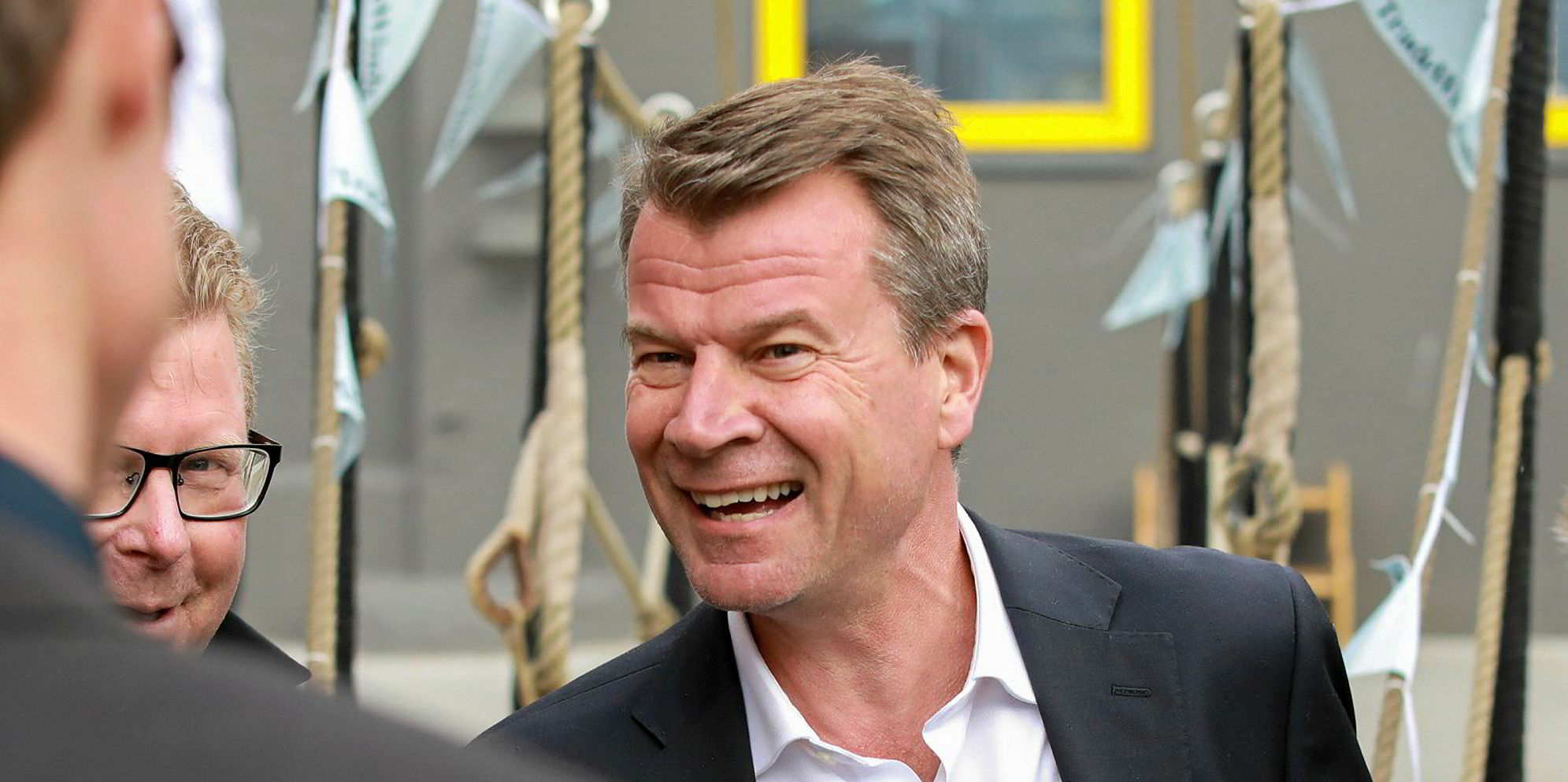Hong Kong-based containership owner Tribini Capital is out of ships after selling two small boxships to AP Moller-Maersk at a record-breaking price.
The sale shows that liner companies have not tired of acquiring steel from their tonnage providers. But will leave financial owner Tribini with no ships after delivery.
Tribini managing director Thomas Soderberg has confirmed that in December the company sold the 2,754-dwt Tribini Tai Hang and Tribini Tin Hau (both built 2016). The ships, which operate as the MCC Chittagong and MCC Ningbo, are to be delivered in the spring.
He declined to comment on the price or the buyer, citing confidentiality clauses, but said he was pleased with the deal, citing the ships' maintenance.
"And we were lucky about the timing," said Soderberg. "But you shouldn't go into shipping unless you think you'll get a better price next week."
A source briefed on the deal told TradeWinds the ships were sold to Maersk, the Danish shipping giant, for between $53m and $55m each. The vessels have traded on time charters to Maersk since they were delivered from Zhejiang Ouhua Shipbuilding.
That price would be the highest ever attained for ships of that size, beating by about $5m per ship the still fresh record set by three younger ships, Lomar Shipping's 2,782-teu California Trader and Carolina Trader (both built 2017) and Delaware Trader (built 2018).
TradeWinds reported in December that Taiwan’s Wan Hai Lines had paid between $48m and $49m each for the trio.
Like other owners that got into the small containership market at a low entry point, Tribini can boast of a solid gain.
Tribini ordered the duo in 2014 for $32m to $33m each as part of a four-ship order placed at Zhejiang Ouhua.
Tribini's next move is not likely to be in steel.
Soderberg, a veteran of Maersk and the Fredriksen group, said investment opportunities are not so promising in the two ship classes he is most familiar with, container ships and dry bulk. Uncertainty about energy transition issues also makes him reluctant to pitch his investors on a new start in shipowning.
"Now we'll need to reinvent ourselves a little bit," said Soderberg.
Partnering with shipping-related start-ups is a possibility.
“Fortunately, we stayed out of ship finance,” he said. “But I think we could add value to start-ups in tech and decarbonisation.”
Soderberg resigned in early 2021 as non-executive director at Australian compressed hydrogen shipping project Global Energy Ventures and as head of its Global Shipping Ventures subsidiary.
"What I learned there was the big challenges of transporting alternative fuels and how difficult it will be to set up worldwide distribution networks as we have with bunker fuels today," he said.
Today, he believes the future of decarbonisation lies less in alternative fuels than in cleaning up traditional fossil fuels through carbon capture projects.
He pointed to the inefficiencies of energy loss involved in converting wind power to electric power to alternative vessel fuels, and believes on-board carbon capture research by companies like Wartsila, Mitsubishi Shipbuilding and Teco 2030 are promising.






